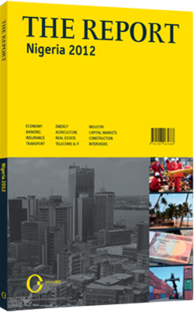OBG talks to Ernest Ndukwe, Chairman, Openmedia Group, and Director, Centre for Infrastructure, Policy, Regulation and Advancement, Lagos Business School

Interview: Ernest Ndukwe
What is the likelihood of unbundling fibre networks in the short to medium term?
ERNEST NDUKWE: The focus in Nigeria is on how to best ensure that the dominant operators with extensive fibre optic infrastructure make their networks available to rival operators to deploy broadband in competition with them. Once it has been established that capacities exist to accommodate other operators, unbundling the fibre networks should be considered. However, it will require careful and extensive consideration by the regulator, which will have to be firm in its pursuit of unbundling once the necessary background studies have been done and the need confirmed. Governments have a role in catalysing access to broadband, and one important scope of this role is establishing an investor-friendly legal and regulatory environment, including easy access to rights of way for new fibre networks. The government can also drive usage by hosting many of its services and interactions with the population online.
How would the liberalisation of frequency affect operators’ investments in data sources?
NDUKWE: Spectrum is crucial to last-mile broadband deployment in Africa. Other last-mile options like ADSL and fibre-to-the-home are not readily available and can be expensive. Thus, wireless options remain the most viable way to reach most communities in Africa for data and broadband services, and spectrum availability to meet demand of operating companies is paramount. To some extent, spectrum liberalisation is already implied in our universal access licensing regime, where operators are allowed to deploy mobile or fixed services on the same frequency. Nigeria opted for technology neutrality even with the first spectrum auction in 2001, though all the bidders eventually opted for the global system for mobile technology. In deploying new access technologies on a legacy spectrum band, we will need to exercise care to avoid interference problems. I support policies that enable spectrum to be put to the best use for the benefit of the subscribing public.
How can the success of Nigeria’s information communications technology (ICT) liberalisation be maintained going forward?
NDUKWE: The progress made in the last decade has made Nigeria an African example of how a well articulated and executed sector reform programme can carry the nation forward. To sustain the progress made, it will be critical for the government to continue fostering stability in the policy and regulatory space. The high investment levels were reached not because Nigeria suddenly became a desired investment destination for ICT in Africa or because of its large population, but because of the stable policy and regulatory regime that the industry has enjoyed since 2000. There is much to be gained from improved synergies in the regulatory framework to reduce the cases of operators having to address multiple regulatory institutions. The government is considering to merge the two technical regulators of spectrum under one body, which would be a very important and welcome development.
What potential does the telecommunications sector hold for reducing unemployment figures?
NDUKWE: Telecommunications is a vital engine for development of any economy. As an essential infrastructural component, it promotes the development of other sectors, including agriculture, education, industry, health, banking, defence, transportation, tourism, etc. It facilitates social interactions and the effective management of national emergencies or natural disasters. Therefore, employment creation is inherent in the growth and expansion of telecoms infrastructure, both within the industry and in other corresponding sectors. A good number of the jobs, however, tend to be high-skilled, well paid positions. There is therefore a need to align opportunities for new jobs with skills development initiatives. Overall, the availability of functional and efficient telecommunications infrastructure, including high-speed broadband, is a sine-qua-non for any country that wants to compete in today’s global economy.
You have reached the limit of premium articles you can view for free.
Choose from the options below to purchase print or digital editions of our Reports. You can also purchase a website subscription giving you unlimited access to all of our Reports online for 12 months.
If you have already purchased this Report or have a website subscription, please login to continue.

